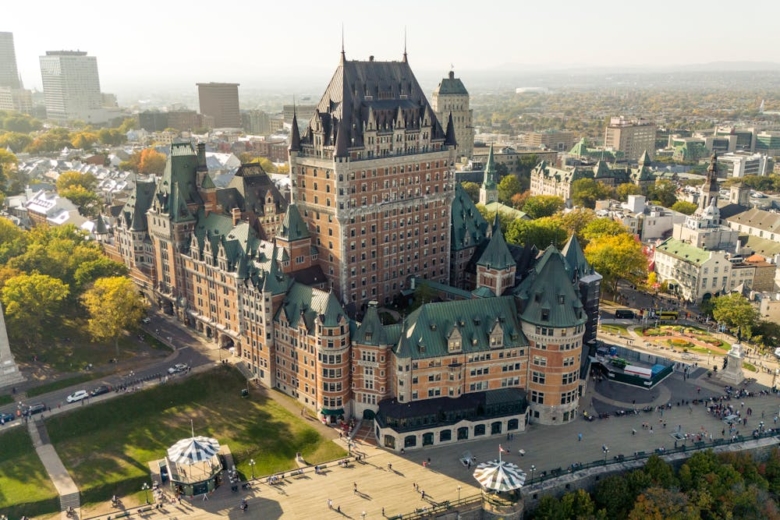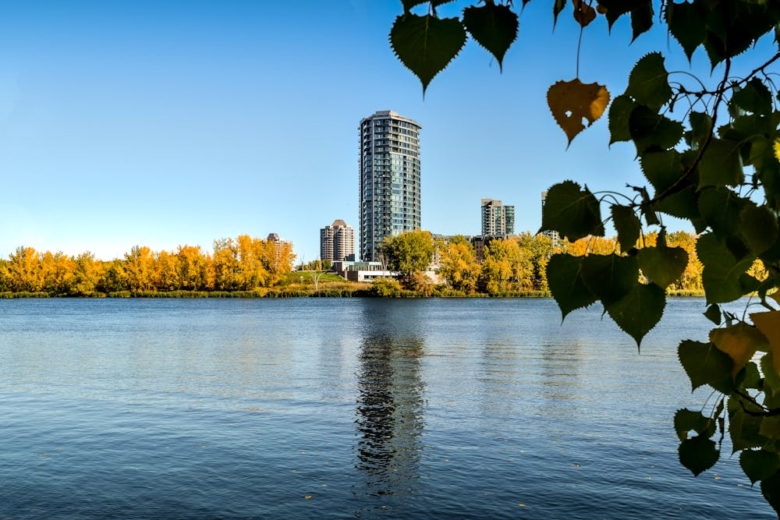Understanding Quebec Airbnb Rules: Your Guide to Compliance
Understanding the world of short-term rentals can feel like a moving target, especially in a region as dynamic as Quebec. If you’re an aspiring host or a seasoned property manager, you know that staying on top of the latest regulations isn’t just good practice, it’s essential for your success. Recent changes have left many wondering: What are the new Airbnb rules in Quebec? How do I stay compliant? And is it still a profitable venture?
We get it. The complexity can feel overwhelming, but it doesn’t have to be a barrier to your goals. In fact, these Quebec Airbnb regulations are designed to professionalize the industry and create a fair marketplace.
This guide is here to cut through the noise. We’ll provide a clear, straightforward breakdown of the current Quebec Airbnb rules, tax obligations, and a step-by-step path to starting your business legally. We’re here to empower you with the knowledge to not only comply, but to build a thriving, independent rental business with confidence.
Don’t see the form to download our Short-Term Rental Agreement? Click here.
Quebec Airbnb rules
The foundation of Quebec’s short-term rental landscape is provincial law, specifically Bill 25, which came into effect on September 1, 2023. These rules apply to anyone renting out accommodations for 31 days or less. Understanding these core requirements is the first step toward running a compliant and successful operation.
Mandatory CITQ registration
The single most important rule for any short-term rental host in Quebec is the mandatory registration with the Corporation de l’industrie touristique du Québec (CITQ). Before you can list your property anywhere, you must obtain a registration certificate and number from the CITQ. This applies to all types of short-term rentals, whether it’s your principal residence or a dedicated tourist property.
Why it matters: This registration system is the government’s primary tool for monitoring the short-term rental market. Operating without a valid CITQ number can result in steep fines, starting at $5,000 for individuals.
Display your registration number everywhere
Once you have your CITQ registration number, you are legally required to display it on every single listing or advertisement for your property. This includes platforms like Airbnb and Vrbo, as well as your own direct booking website. Rental platforms are now also legally obligated to verify that your number is valid before allowing your listing to go live.

Principal vs. secondary residence rentals
The law makes a distinction between renting out your principal residence and renting out a secondary residence (a property you own but don’t live in, like a cottage or investment condo).
- Principal residence: This is the address listed on your driver’s license, health card, and tax returns. You can rent out your principal residence on a short-term basis without needing a specific municipal land-use permit, as long as you have your CITQ registration.
- Secondary residence: Renting out a property that is not your principal residence requires you to operate in an area where municipal zoning by-laws specifically permit short-term rentals. This is a critical distinction that can determine whether you’re allowed to operate at all.
Municipal by-laws and zoning
While provincial law sets the baseline, municipalities have the final say on where commercial short-term rental activities can take place. Before investing in a property, you must check the local zoning regulations. For a deeper look at a specific market, our guide to Montreal Airbnb rules offers a detailed breakdown.
A key example of municipal power is the “80/20 rule” seen in some boroughs and cities. This rule can cap the number of tourist accommodation units at 20% of the total housing stock in a given area, severely limiting the availability of new permits. Always verify with the local municipal office to ensure your property is in a designated tourism zone.
Liability insurance
While not included in Quebec short-term rental regulations, having adequate liability insurance is a nonnegotiable part of running a professional rental business. Standard homeowner’s insurance typically does not cover commercial activities like short-term rentals. You must secure a specific policy that covers property damage, guest injuries, and other potential liabilities. This protects your assets and your peace of mind.

Quebec Airbnb taxes
Understanding your tax obligations is crucial for maintaining financial health and compliance. Hosts in Quebec are responsible for collecting and remitting several types of taxes, turning your rental business into a legitimate commercial enterprise.
Here are the primary taxes to be aware of:
- Tax on lodging: A provincial tax of 3.5% of the accommodation price is levied on any short-term rental unit in Quebec’s 21 tourism regions. This tax must be collected from the guest and remitted to Revenu Québec.
- Goods and services tax (GST): This is a 5% federal tax. You are required to register for, collect, and remit the GST if your total annual revenue from all commercial activities (including your rental income) exceeds $30,000.
- Quebec sales tax (QST): This is a 9.975% provincial tax. Similar to the GST, you must register for, collect, and remit the QST if your total annual revenue surpasses the $30,000 threshold.
It’s important to note that platforms like Airbnb may collect and remit some of these taxes on your behalf. However, the ultimate responsibility for compliance lies with you, the host.
How to start an Airbnb in Quebec legally
Feeling empowered to get started? Launching your Airbnb in Quebec is entirely achievable. Following these steps will ensure you operate legally from day one, setting you up for long-term success:
- Confirm municipal zoning: Before anything else, contact your local municipal office. Confirm that the address of your potential rental property is located in an area where short-term rentals are permitted by local by-laws. This is the most critical hurdle, especially for secondary residences.
- Register with revenue Québec: You must be registered with Revenu Québec to collect and remit the required taxes (GST, QST, and the tax on lodging).
- Apply for your CITQ certificate: Visit the CITQ website and complete the application for your “tourist accommodation establishment” certificate. You will need to provide proof of insurance and other documentation. Once approved, you will receive your official registration number.
- Prepare and list your property: With your CITQ number in hand, you’re ready to list your property. Ensure you include the number prominently in your listing description on all platforms, including Airbnb, Vrbo, and your own website.
- Invest in property management software: This is where you turn your property into a business. Use a platform like Lodgify to manage your bookings, synchronize your calendars across platforms, automate guest communications, and build your own direct booking website to grow your brand and independence.

FAQs about Airbnb rules in Quebec
Let’s address some of the most common questions aspiring and current hosts have about Quebec short-term rental laws.
Is Airbnb allowed in Quebec?
Yes, Airbnb is allowed in Quebec. However, it is strictly regulated. All hosts must obtain a registration number from the CITQ and display it on all of their listings. Additionally, hosts operating a secondary residence must ensure their property is located in a zone designated for tourist accommodation.
Is Airbnb profitable in Quebec?
Yes, running an Airbnb can be very profitable in Quebec. The province is a world-class tourist destination with strong demand in cities like Montreal and Quebec City, as well as in ski and nature regions like Mont-Tremblant and Charlevoix. According to data from AirDNA, popular markets maintain high average daily rates (ADR) and occupancy. Your profitability will depend on your location, property size, ability to manage your business efficiently, as well as providing an excellent guest experience.
What are the new rules for Airbnb in Quebec?
The most significant new rules for Airbnb in Quebec stem from Bill 25, which took full effect on September 1, 2023. The key changes are:
- Mandatory CITQ registration: Every short-term rental must have a valid registration number.
- Mandatory display of registration numbers: Your registration number must be visible on all online listings and advertisements.
- Platform accountability: Platforms like Airbnb are now required to verify the validity of a host’s CITQ number before the listing can be active.
- Increased fines: Penalties for noncompliance have been significantly increased to deter illegal operations.

Host with confidence in Quebec
The regulatory landscape in Quebec has certainly evolved, keeping local hosts and property managers on their toes. By understanding the Quebec Airbnb laws and following the proper steps, you’re not just avoiding fines. You’re also building a sustainable, professional, and independent business.
The path to success is about compliance, but it’s also about empowerment. With the right knowledge and tools at your disposal, you have the power to create a profitable venture on your own terms.
Ready to take control of your rental business? Lodgify provides an all-in-one software solution to manage your bookings, build a direct booking website, and grow your business independently. Start your free trial today and set your short-term rental business up for success!
Don’t see the form to download our Short-Term Rental Agreement? Click here.